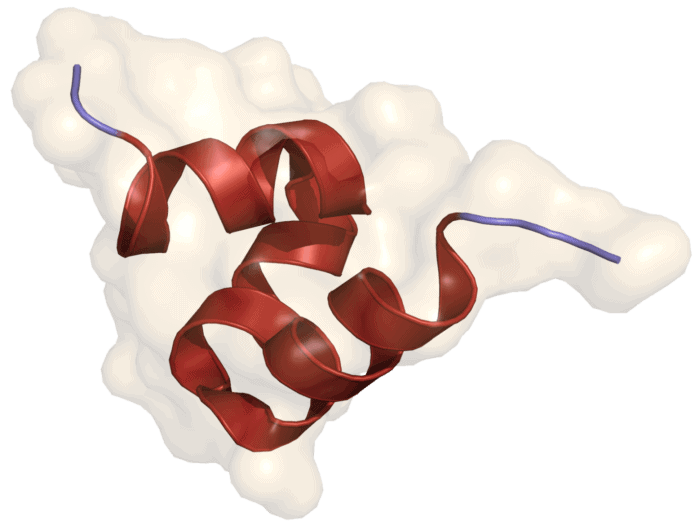Increasing blood levels of the hormone osteocalcin reversed age-releated memory loss in mice, according to Columbia University researchers.
Said study lead Gerard Karsenty: “In previous studies, we found that osteocalcin plays multiple roles in the body, including a role in memory. We also observed that the hormone declines precipitously in humans during early adulthood. That raised an important question: Could memory loss be reversed by restoring this hormone back to youthful levels? The answer, at least in mice, is yes, suggesting that we’ve opened a new avenue of research into the regulation of behavior by peripheral hormones.”
In one experiment, Karsenty and team over a two-month period administered continuous infusions of osteocalcin to aged mice. The animal performed substantially better on two memory tests, matching levels normally only found in young mice. Likewise, when osteocalcin-rich blood plasma from young mice was injected into older mice their memory test scores zoomed. No such improvement was seen in mice injected with blood plasma from young mice deficient in osteocalcin. But adding the hormone back to such blood and injecting it in elder mice again improved their performance.
The Columbia researchers have found that osteocalcin binds to a receptor called Gpr158 found abundantly in neurons in the CA3 region of the brain’s memory center, the hippocampus. No toxic effects were found in mice receiving osteocalcin supplements. Said Karsenty: “It’s a natural part of our body, so it should be safe…. But of course, we need to do more research to translate our findings into clinical use for humans.” Previous research has found that the muscles of older mice are rejuvenated by osteocalcin injections.

